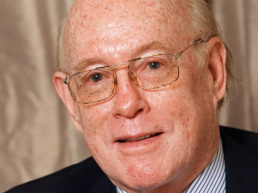He spent four decades representing Portugal in some of the most strategic diplomatic posts – London, Paris, Brasilia – for the country. He was Secretary of State for European Affairs between 1995 and 2001, when he went to New York to serve as Permanent Ambassador of Portugal to the United Nations. That’s where he was when 9/11 happened. Ambassador Francisco Seixas da Costa is our guest this week.
After four turbulent years in American politics, Joe Biden took the reins of the White House in January of this year. But the tensions are not over. The attack on the Capitol and the disagreements between the two major U.S. parties – Democrats and Republicans – have foretold four long years of Biden’s presidency. Will the Democrats have the ability to establish their agenda? And what’s next?
This week we spoke with Francisco Seixas da Costa, an experienced ambassador who throughout his diplomatic career has had positions in the main embassies for our country under his responsibility. He remains active, as a commentator, in the analysis of international politics and geostrategic news, and in this conversation makes an analysis of the first months of Joe Biden’s presidency.
“What Biden did was a surprise, in my opinion, for two reasons: first, because immediately in the very constitution of the team, it was a skilled team, a team that made no compromises in terms of human resources, so to speak, to what would be some expectations of the more liberal wing. But then, on the other hand, it has a legislative agenda or the promotion of legislative proposals that is very advanced.” – Francisco Seixas da Costa
If it is true that Joe Biden has brought some normality to the presidency, after four years of Donald Trump, it is also true that the former U.S. President remains a fearsome force within the Republican Party.
“The big question is whether Biden is a parenthesis. That is if tomorrow we will not eventually have a Trumpism, with or without Trump. And so Biden would eventually be a pause. Or if Biden marked a change, and marked a new style, and marked, let’s say, even a reconciliation of Americans with a certain style of presidency, which is the traditional style.” – Francisco Seixas da Costa


